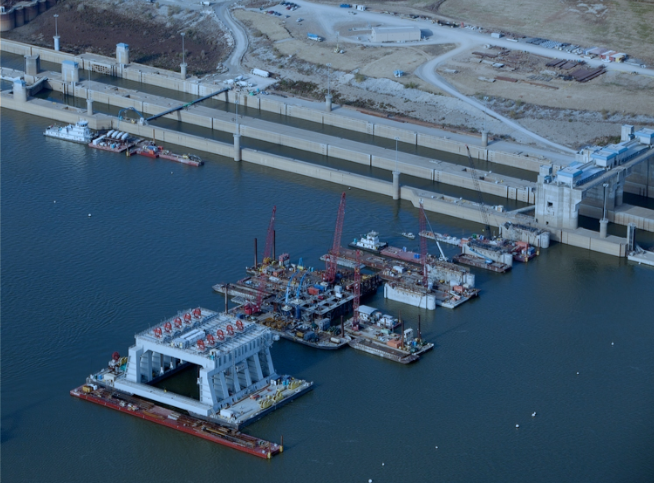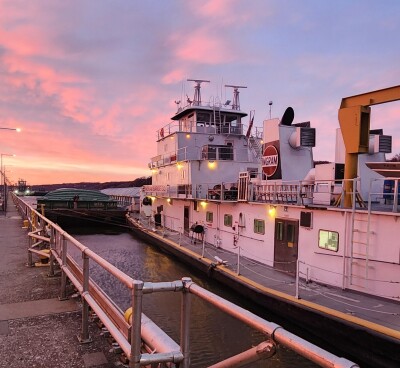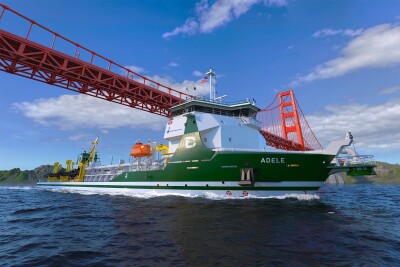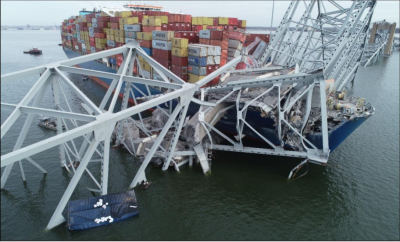As Congress begins to review the Trump administration’s fiscal year 2021 budget plan, the waterways industry is increasingly hopeful that lawmakers will reject the president’s proposals to cut federal waterways spending, impose fees for commercial use of certain waterways, and spend no money from a trust fund partially funded by the barge industry to finance construction and repair of aging navigation infrastructure.
Several congressmen who sit on key congressional committees that oversee waterways spending have told industry representatives that the Trump plan is essentially dead on arrival on Capitol Hill, and that Congress will likely continue to appropriate strong budgets for the U.S. Army Corps of Engineers inland waterways programs as it has in the past several years.
Rep. Hal Rogers, R-Ky., a ranking member of the Appropriations Committee, said that the budget will be “promptly ignored,” adding that since waterways funding has enjoyed strong bipartisan support over the years, it will likely escape the partisan friction and discord that is derailing many other pieces of legislation. “We all know infrastructure is aging and falling apart,” the lawmaker told waterways executives gathered for the winter meetings of the Waterways Council Inc. ”We need to increase investment,” not cut back, and “you have great support in both the House and the Senate.”
President Trump’s fiscal 2021 budget plan for the Corps of Engineers, released last month, proposed $5.96 billion for the civil works program, down 22% from the current $7.65 billion appropriation.
Of the $2.1 billion construction account, no money would be allowed to be spent on priority infrastructure projects from the Inland Waterways Trust Fund, which is financed half by a barge industry fuel tax and the rest by the federal treasury. This is the first time zero funding has been proposed for the trust fund projects, which has surprised and angered the waterways industry.
The plan also imposes a fee on commercial waterways users to raise $180 million a year over 10 years. A user fee has been floated in many previous budgets, from many different administrations, but has never gained traction in Congress. The industry argues that it has already agreed to an increase in the diesel tax it pays to the Fund and that it is the only industry that pays for waterways improvements even though many other users benefit.
The budget hit hostile territory this week in Congress during a hearing before the House Appropriations subcommittee on Energy and Water Resources.
“These cuts are greatly disappointing to this subcommittee and to our colleagues from both parties,” said Rep. Marcy Kaptur, D-Ohio, subcommittee chair. “These cuts are divorced from reality.”
Advocates of the waterways visited the offices of 110 lawmakers — about 1/5 of the entire congressional membership — to make their case for strong federal support for modernization of the aging inland navigation system after the February WCI meetings. Similar meetings with lawmakers are planned when the American Waterways Operators are in Washington in April for their annual “Barge In.
Advocates also seek approval of the 2020 Water Resources Development Act (WRDA), which they hope will include another big priority: changing the Inland Waterway Trust Fund formula from the current 50/50 cost share between Uncle Sam and the barge industry to 75% federal/25% industry contribution. This change has a precedent, when a 75/25 percent formula was imposed on the trust fund that finances deep draft ports and was used to help completion of the Olmsted Lock and Dam project and the Chickamauga Locks project.
WCI says that the 75/25 cost share would allow 13 projects to be completed in 10 years and all 22 priority inland projects to be finished in 20 years. It would take much longer to finish these projects under the current 50/50 split, with only six projects finishing in 10 years, 13 in 20 years, and nine projects still not completed in 20 years.
“The message came back that probably not much will happen in Congress (during this presidential election year) with a few exceptions,” John Doyle, a Washington lawyer and lobbyist working with WCI, said at a press briefing last Thursday called to outline WCI’s 2020 priorities. Lawmakers said one of those exceptions will likely be passage of the WRDA bill, Doyle said they were told, in addition to a rejection of the proposed budget cuts and the user fees.
The 75/25 formula change could prove to be more challenging to pass, and is currently being discussed by the key committees.





